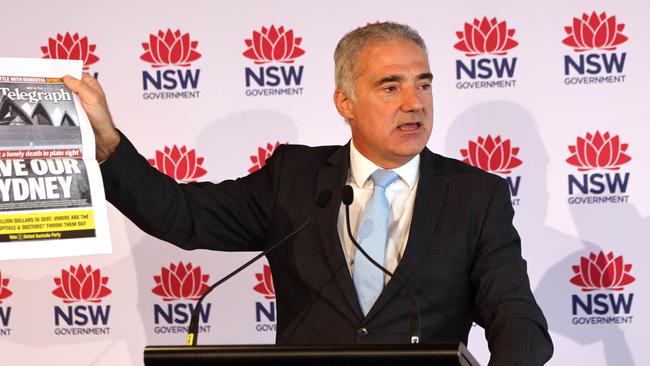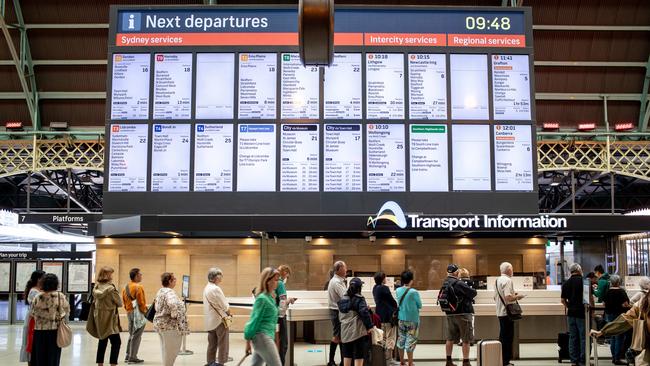Is it really time to get back to the office?
A Sydney business leader has called for Sydney’s “army of workers” to return to the office – but the idea has its problems.
At Work
Don't miss out on the headlines from At Work. Followed categories will be added to My News.
A Sydney business leader has called for Sydney’s “army of workers” to return to the office – but the idea has its detractors.
Executive Director of Business Sydney, Paul Nicolau, recently penned an opinion piece in the Sydney Morning Herald titled: “Sydney, it’s time to get back to the office.”
Nicolaou’s piece, in short, encourages workers who have operations in the CBD to return to in-office work at least three-to-four days a week.
He argues that after three years, Sydney’s once flourishing CBD has lost its mojo with its only salvation is the city’s “army of workers”.
“Our CBD in particular suffered from a lack of foot traffic in 2022,” Nicolaou wrote.
“This had a big impact on consumer spending and pushed many businesses ever closer to the wall. Staff shortages have only made their ability to bounce back even harder.”
He says workers from all levels of government, small businesses, and corporate behemoths need all darken their offices’ doors once more to get the city “humming”.
But commenters on the Sydney Morning Herald’s Facebook page and on a Reddit thread appear not to agree with Nicolaou’s proposition.

“No, it isn’t … time to make offices into apartments to fix housing affordability and people work at home,” one Facebooker said.
“It would be very negative to go back the ‘entrenched’ old ways of working. The losses would simply be too great and bring little actual gain. “I think the article is very self-centred and fails to see a much bigger picture of the future,” another chimed in.
The Reddit response was colourful as usual.
“No … working from home is the future, Boomers,” one commenter wrote.
In the SMH’s reader comments, some were slightly more understanding of Nicolaou’s points – but overall, it was a resounding no.
“Just remember – if you can do your job from home, you can do your job from ‘insert cheap labour country’ – careful what you wish for,” one reader warned.
“After scrolling several pages down, I have realised this article wins the award for the most overwhelming reader disagreement ever,” another reader claimed.
Australians have taken working from home and flexible work arrangements and run with it – though some recent data shows bosses aren’t as keen on seeing it continue.

In 2022, research that canvassed over 100 top-level Australian executives found 77 per cent recognised flexible working was under threat as they navigate “economic uncertainty”.
Almost three-quarters of Australian business leaders preferred that staff work from the office rather than from home.
That same data set commissioned by LinkedIn found flexibility and work-life balance were valued the most after compensation – well above diversity, work culture, good management, and the ability to work on innovative projects.
KPMG’s 2023 Keeping Us Up At Night report found losing good workers was the biggest concern for Australian employers, not only for 2023 but for the next five years.
The report stated, “The business case is clear: provide true flexibility to retain and grow your workforce.”
“In practice, this means enhanced personalisation and flexibility across the employee lifecycle, in addition to having an ‘always on’ listening approach providing employees the opportunity
to articulate how they would like to work, what their future career path looks like and in general what will help them to be successful in their role,” it continued.

“Flexibility has moved beyond work-life balance and is shifting to work-life integration. “Employers need to have well-articulated specific policies and approaches for the future workplace.
“This will provide positive benefits to employee wellbeing, overall employee engagement and an increase in productivity.”
Big corporates in the US are already nudging workers back to their office desks.
Nicolaou’s idea of getting Australians to do the same might be a little optimistic.
Originally published as Is it really time to get back to the office?



